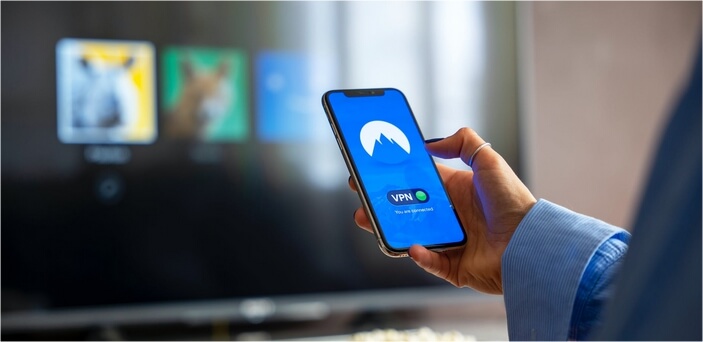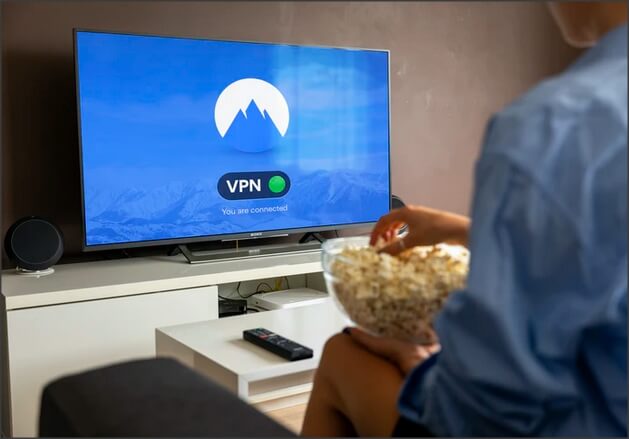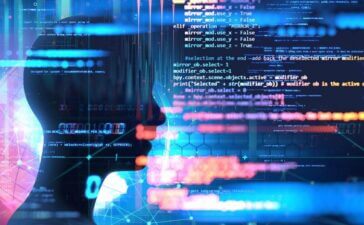It is a well-known fact that VPNs are extremely useful to maintain anonymity on the internet and protect ourselves from cybercriminals. A VPN can be thought of as a tunnel that lets your data travel anonymously from one point to another. A VPN diverts the data traffic through a remotely located server, thereby letting you bypass local servers or open networks that may otherwise expose you to hackers or government surveillance. With the amount of information, we share online, using a VPN is a smart and obvious decision.
How does VPN work?
Usually when browsing online, data is transferred from your computer to the destination site. This process exposes a lot of personal information such as your IP address and from this, the network can quickly pinpoint your location and monitor your browsing activity. Advertising corporations buy this information and use it to customize online advertisements. Specific government organizations are also known to keep constant surveillance to monitor for suspicious activity.
A Virtual Private Network (VPN) plays the role of an invisibility cloak on the internet; while it may not be 100% fool-proof, it does encrypt your personal data so that you can browse safely and anonymously.
VPNs work by directing your network traffic through your chosen server, located anywhere in the world. The VPN acts as an intermediary of sorts, hiding details such as your location and IP address, thereby protecting your identity.
Another critical function of a VPN is to encrypt your data and render it unreadable if your network is intercepted. Encrypting is a method of encoding data that makes it difficult for hackers to intercept and interpret information.
At the destination location, this encrypted data is decrypted. Such a high level of security is necessary as local servers can be compromised and are a common playing ground for hackers and cybercriminals who indulge in unethical activities such as data theft, privacy infringements, and theft of essential credentials.
The effectiveness of encryption depends highly on your VPNs protocols, which may differ from network to network.

Do I always need to be connected to a VPN?
The simple answer is: yes. A VPN is most effective if you remain connected to it whenever you are browsing online. There are several reasons for this:
1. Rogue Connection Points / Trojan Networks
Public wireless networks, while being easy and free to access, are often home to hidden dangers in the form of rogue connection points. Once connected to rogue connections, hackers can invade your personal digital information and wreak havoc; stealing your digital identity or gaining access to your banking credentials
2. Accessing sensitive data
Technology experts always advise to refrain from performing any transaction across a public network, as such data exchanges are elementary to detect and often aren’t protected through encryption. Using a VPN can mask your transactions and let data flow ambiguously across the network.
3. To avoid malicious pop-ups
Apart from the fact that online advertisements can be annoying, they also gather a lot of information from our online history. Information such as our online purchases, search requests, sometimes even our everyday conversations can remain at risk of misuse.
These firms then use this data to post ads selectively. The fact that our internet service providers have access to such in-depth information is alarming however VPNs can break this chain by masking our internet activities.
4. To protect your network from targeted bandwidth throttling.
Internet service providers often selectively limit the network bandwidth of users based on the extent of their usage or the overall load that they are facing. As a result of this, consumers have to deal with reduced network speeds.
VPNs prevent the service provider from accessing the information on your usage and therefore prevent selective bandwidth throttling.
5. To bypass restrictive Governmental Policies
VPN allows people from countries with strict IT policies to access information or use internet functionalities available across the globe.
Through a VPN, you can easily bypass governmental firewalls anonymously to enjoy the content available worldwide.
Using a VPN has become a necessary decision, due to ever-increasing reports of cybercrime and online identity theft. While VPNs ensure the security of personal digital data and encryption, it is important to acknowledge that the most secure VPN servers will require you to pay to connect.
Conclusion
Free VPNs may therefore seem like an attractive option, however, they do not always provide a sufficient level of security and may slow your connection down. Make the decision to go with a reputable VPN provider and enjoy safe and secure browsing whenever you are online.




